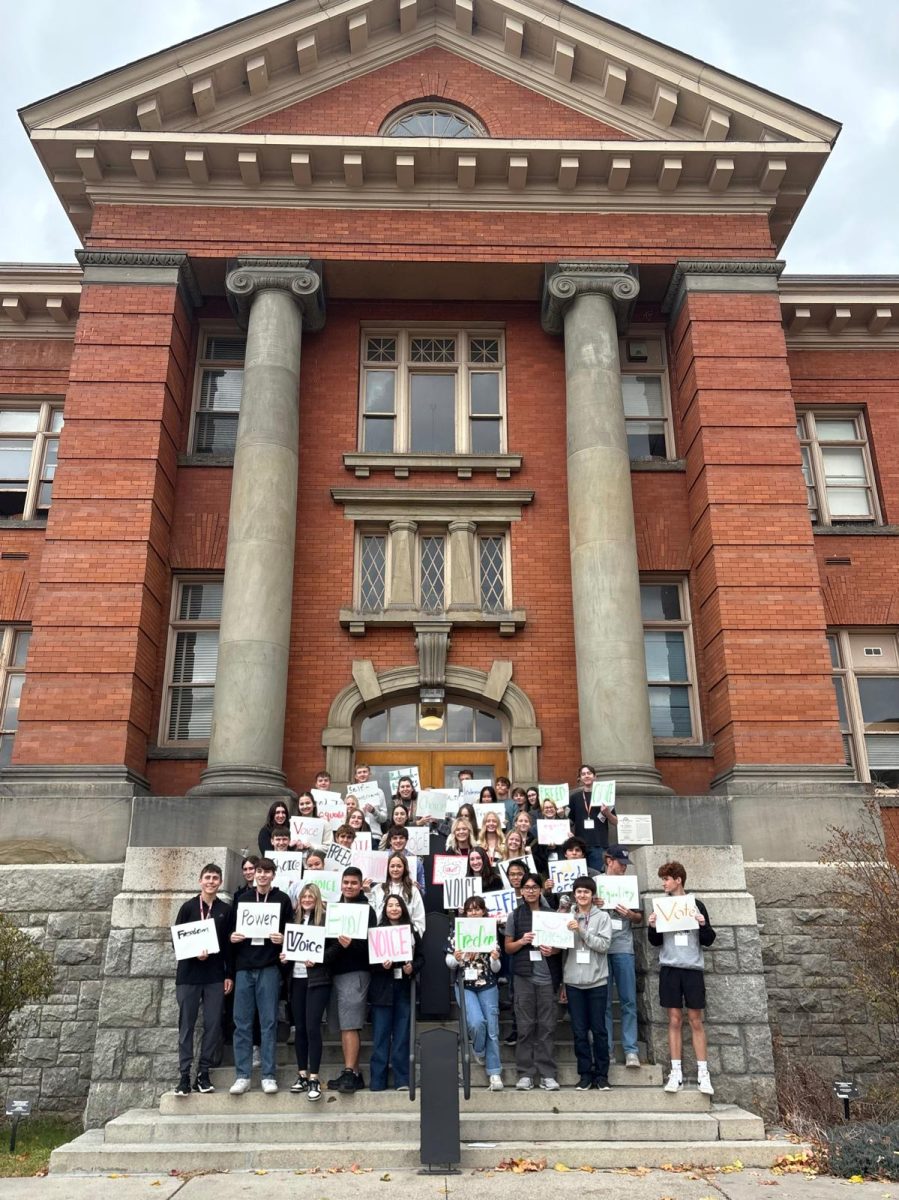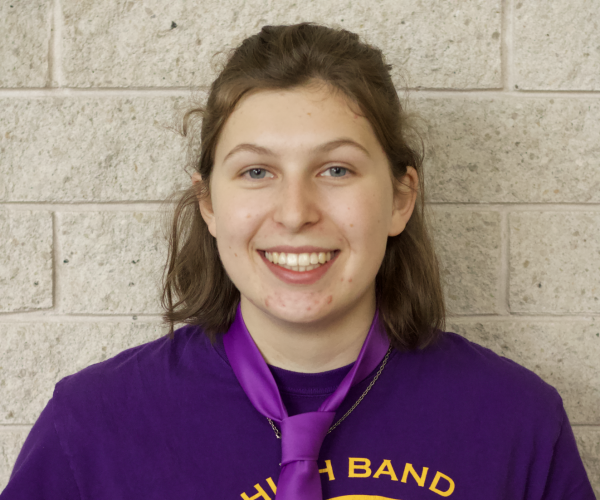On Tuesday, October 29th, the Mansfield Center hosted its inaugural Democracy forum at the University of Montana. It was attended by almost 300 high school students and their advisors. It was hosted with the purpose of increasing political understanding and amplifying the voices of young people in policy.
Sentinel was represented by the AP Government classes, as well as the AP Seminar, with Mr. Shearer being responsible for involving the students in a hands-on event to learn about the world around them.
The Mansfield center is an organization that was created in 1983 by Congress to honor Mike and Maureen Mansfield. Mike Mansfield was the senate’s longest-serving majority leader and was known for his statesmanship and leadership, even amongst division and difficult times. He was born in Montana in 1903 and dropped out of high school to serve in the military at age 14. By 1922, he was working in the mines and remained there up until he met his wife, Maureen.
After eight years, he returned to school to get a high school diploma, a bachelor of arts degree at the University of Montana, and eventually, a masters. He was honored for being able to work with others, no matter their party, and maintaining respect in any situation.
He helped to pass many bills for the people and was called a “quiet leader in troubled times” by those around him. He aided in passing the civil rights act, along with the War Powers Act, and was appointed U.S. Ambassador to Japan after 16 years in the Senate.
It is this cooperation and understanding that the Mansfield Center hopes to impart to young people around the world. They aim to educate about different aspects of democracy in order to promote a world in which people can express their opinions and ideas without causing a divide between everyday citizens.
They have established programs such as their Youth exchange program (in which students from Montana and Chicago explore the differences and similarities of their political landscapes), the Taiwan spring study tour (in which students gain language and culture experience ), as well as many other high school and university programs to foster diversity and communication.
Leaders of the organization like Katie Vaughan, the director of civic engagement, decided that as the 2024 presidential election is rapidly approaching, it “would be fitting” to start the program this year as it is a critical election year.
The event was designed to give young people a better grasp on the world around them as well as a platform to speak about their ideas and experiences. The day began with a presentation by Jill Valley who is a news anchor for KPAX, along with Ray Curtis who has a MIS in political science and arts. They discussed the difficulties of unbiased reporting, as well as the dangers of relying on only one news source.
A common theme amongst reasons for division has been found to be the media consumption of the public.
This is not an issue that is specific to Montana alone, around the country there has been an increased level of bias in reporting as well as personal media consumption such as Instagram and TikTok. This is because of a positive feedback loop created by media algorithms that only provides people with news that they will agree with.
Valley highlighted the confirmation bias that comes with not diversifying news sources and also explained a key difference between this election and elections of the past: candidates are refusing coverage.
According to Valley, in the past, candidates have been more than happy to participate in interviews and news stories, but she has seen a shift in this cycle with some candidates flat out refusing to participate. This change has sparked worry that the public may not have enough information on candidates to make an informed vote.
Following this speech, students were divided into groups and sent to various breakout sessions, such as how to debunk fake information and how to address cultural differences. These sessions were taught primarily by University professors and were included to give students some hands-on learning, as well as more personal groups.
The sessions proved to be regarded as fun and interesting by over half of the Sentinel students who attended, and the majority reported that they would attend again if given the chance.
Another key goal of the forum was to educate students on how to overlook differences and promote diversity. Reverend Nelson Rivers, former president of NAACP and co-president/founder of the Charleston area justice Ministry, spoke about his experiences as an activist and preacher in a world where he was politically and socially ostracized for his race. As an issue that still persists today, he highlighted the importance of learning about and accepting diversity.
He also pointed out the fact that “there is a difference between rhetoric and action” and that many young people today prefer to be uninvolved in politics. In a poll by the center of information and research on civic learning and engagement, researchers found that in 2022, the voter turnout for young adults was just 23% which was lower than years prior.
Findings such as these, indicate the importance of forums such as the Mansfield Democracy Forum, as many young people do not use their voices to influence issues that involve them.
The reverend also spoke to the price of freedom, and the way it is often taken for granted today saying, “if you don’t exercise it you will lose it”. As someone who fought for the rights to vote and for equality, the Reverend points out that not using the power you are given is the same as not having the power to begin with and makes it easy to remove.
He urged young people to get involved in their communities, and find their purpose in the world around them and even remained at the University to speak later in the evening in an event open to the public.
To finish off the day, the Mansfield staff set up a discussion to review the day as well as take photos and commemorate the event.
With the 2024 election being one of the most widely divided in history, the Mansfield center hopes to continue their efforts to expand democratic participation and teach others how to get involved.




